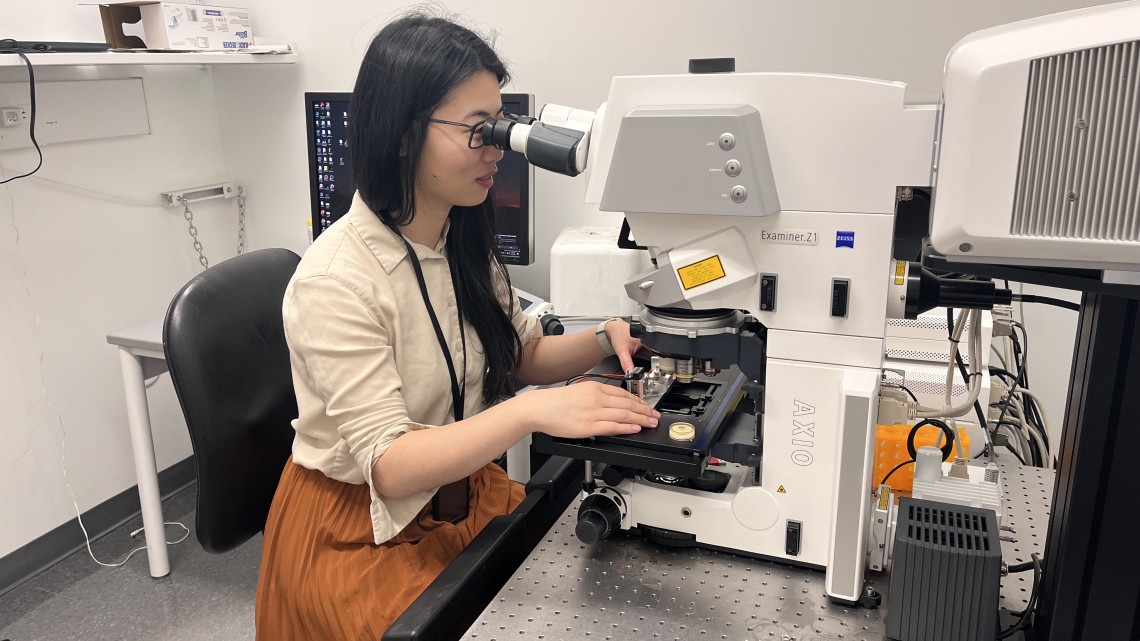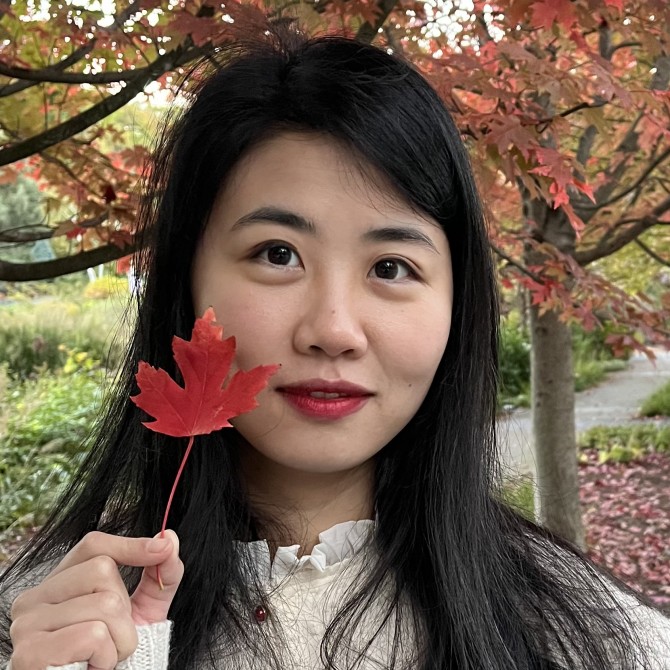
Weill Institute of Cell and Molecular Biology researcher Si Chen at work in the laboratory. Photo: Provided
News directly from Cornell's colleges and centers
Weill Institute for Cell and Molecular Biology Awards Fleming Research Fellowship
By Henry Smith
The Weill Institute for Cell and Molecular Biology at Cornell University has awarded Postdoctoral researcher Si Chen the 2024 Sam and Nancy Fleming Research Fellowship. This prestigious three-year fellowship supports talented young researchers who are doing cutting-edge research in basic biomedical sciences and are planning careers in biological or medical research.
“The Fleming Fellowships provide exceptional young scientists the support and freedom to pursue ambitious projects,” said Marcus Smolka, interim director of the Weill Institute and professor of molecular biology and genetics in the College of Agriculture and Life Sciences. “The 2024 recipient is a remarkable researcher. Her proposal to measure the interplay of mechanosensing and the mechanics of plant growth is highly innovative and is a great example for how science in the Weill Institute uses cell biological approaches to solve complex fundamental questions at the organismal level.”
If you ask how gene expression leads to the enormous range of plant organ shapes in nature, you're touching on one of the central questions in developmental biology: How do plant organs grow into such forms? Answering this requires a thorough understanding of plant growth and morphogenesis that involves multiple disciplines. Unraveling this mystery could one day allow us to engineer plant shapes, like designing a leaf shaped like a shopping bag.
The Fleming Fellowship will enable Chen to explore the relationships between two key players in plant growth mechanosensing — microtubules and calcium ions—and their influences on mechanical properties in Arabidopsis thaliana, a model organism in plant developmental science.
“As plants grow, they experience mechanical forces,” Chen said. “Each plant cellhas a rigid wall that surrounds it and is inflated with a high internal pressure, which can be greater than the pressure in a car tire. The way a plant cell grows is by expanding its cell wall, much like blowing up a balloon—but in this case, the expansion is permanent. For plant organs to grow properly, the mechanical properties of their cell walls play a big role and must be carefully regulated. But what controls these properties?”
To help answer this question, Chen will use the Fleming Fellowship to investigate the plants’ built-in system of mechanosensing, which allows cells to feel the forces acting on them and respond by biochemical signals. These signals then influence the cell walls’ properties, and the new properties, in turn, change the forces that the plant cells feel. This creates a feedback loop that helps ensure the plant grows the right way.
“The key question that needs to be answered is: How do these processes work? And how does the interplay between mechanosensing and the cell wall’s properties influence the organ’s overall growth?” Chen said.
Chen has built an experimental system that integrates the application of force, precise force measurement, and high-resolution confocal imaging to explore this. In addition, her lab has plants with fluorescent reporters to visualize microtubules and calcium ions. With the experimental system and the fluorescent reporter plants, Chen will characterize the mechanical properties of plant tissue and how they are altered by changes in mechanosensing. The Fellowship will enable her to quantify how mechanical forces influence calcium ion and microtubules mechanosensing. This, in turn, will reveal how these influence mechanical properties, and ultimately, how the interaction between mechanosensing and mechanical properties shapes plant organs. This work will contribute to a deeper understanding of the role mechanics play in plant growth and development.
The Weill Institute for Cell and Molecular Biology, established in 2008, is an interdisciplinary hub of research in molecular biology and genetics, biomedical engineering, chemistry and chemical biology, computational biology, microbiology and plant biology.
Henry C. Smith is on the life sciences communications team for the Office of the Vice President for Research and Innovation.
Media Contact
Get Cornell news delivered right to your inbox.
Subscribe


